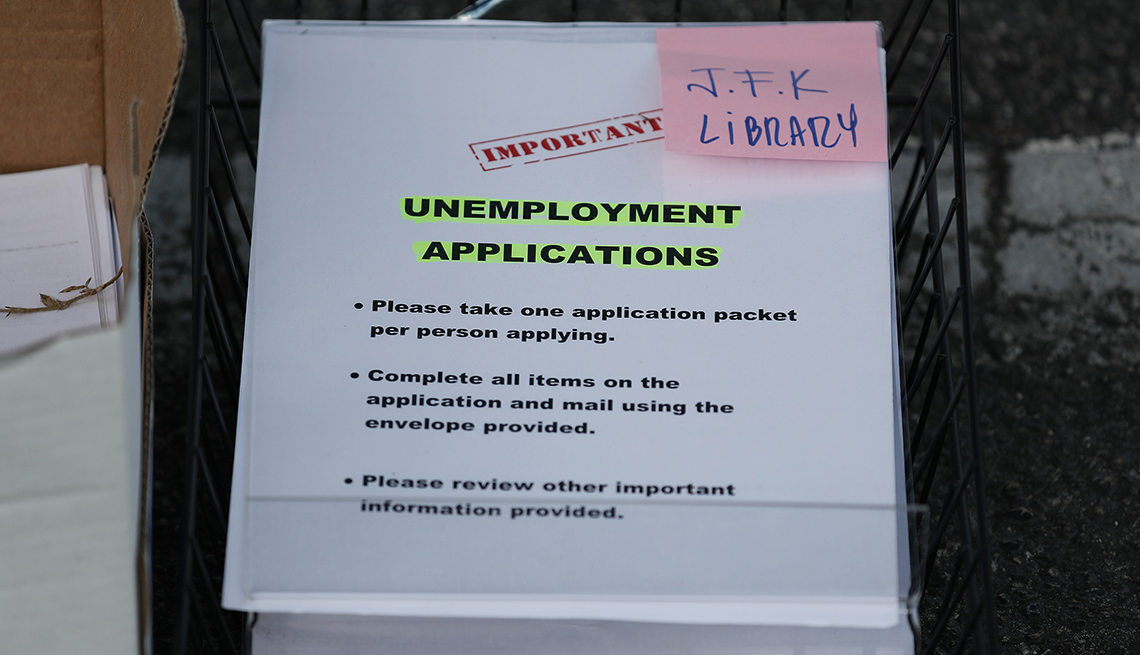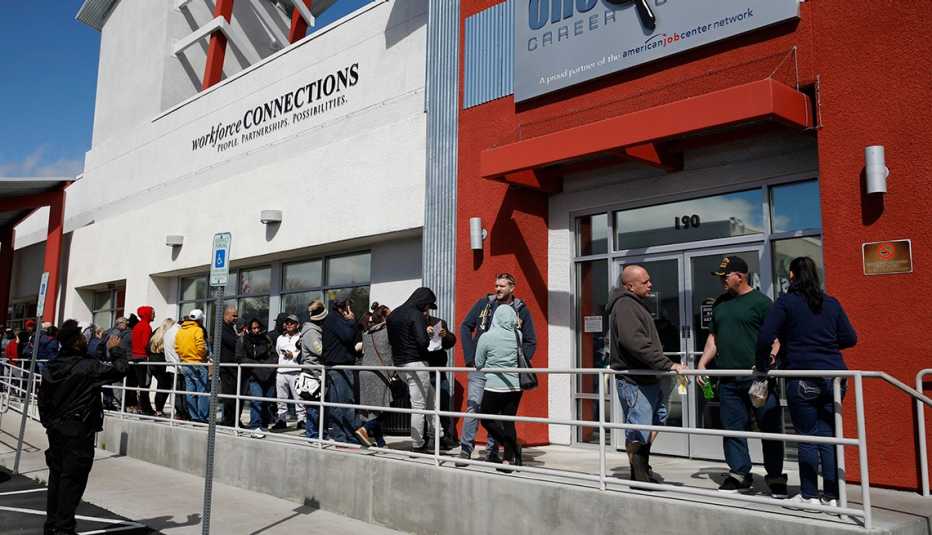Staying Fit
The wave of layoffs that has engulfed the U.S. economy since the coronavirus struck forced 5.2 million more people to seek unemployment benefits last week, the government reported Thursday.
Roughly 22 million have sought jobless benefits in the past month — easily the worst stretch of U.S. job losses on record. Roughly 12 million people are already receiving unemployment checks, nearly matching the peak reached in January 2010, shortly after the Great Recession officially ended.


AARP Membership— $12 for your first year when you sign up for Automatic Renewal
Get instant access to members-only products and hundreds of discounts, a free second membership, and a subscription to AARP the Magazine.
Businesses shuttered across the country
All businesses deemed nonessential have been closed in nearly every state as the economy has virtually shut down. Deep job losses have been inflicted across nearly every industry. Some economists say the unemployment rate could reach as high as 20 percent in April, which would be the highest rate since the Great Depression of the 1930s. By comparison, unemployment never topped 10 percent during the Great Recession.
Layoffs are spreading beyond service industries like hotels, bars and restaurants, which absorbed the brunt of the initial job cuts, into white-collar, blue-collar and retail trades — including software programmers, construction workers and salespeople.
Collectively, the job cuts could produce unemployment on an epic scale. Up to 50 million jobs are vulnerable to coronavirus-related layoffs, economists say — about one-third of all positions in the United States. That figure is based on a calculation of jobs that are deemed nonessential by state and federal governments and that cannot be done from home.



































































